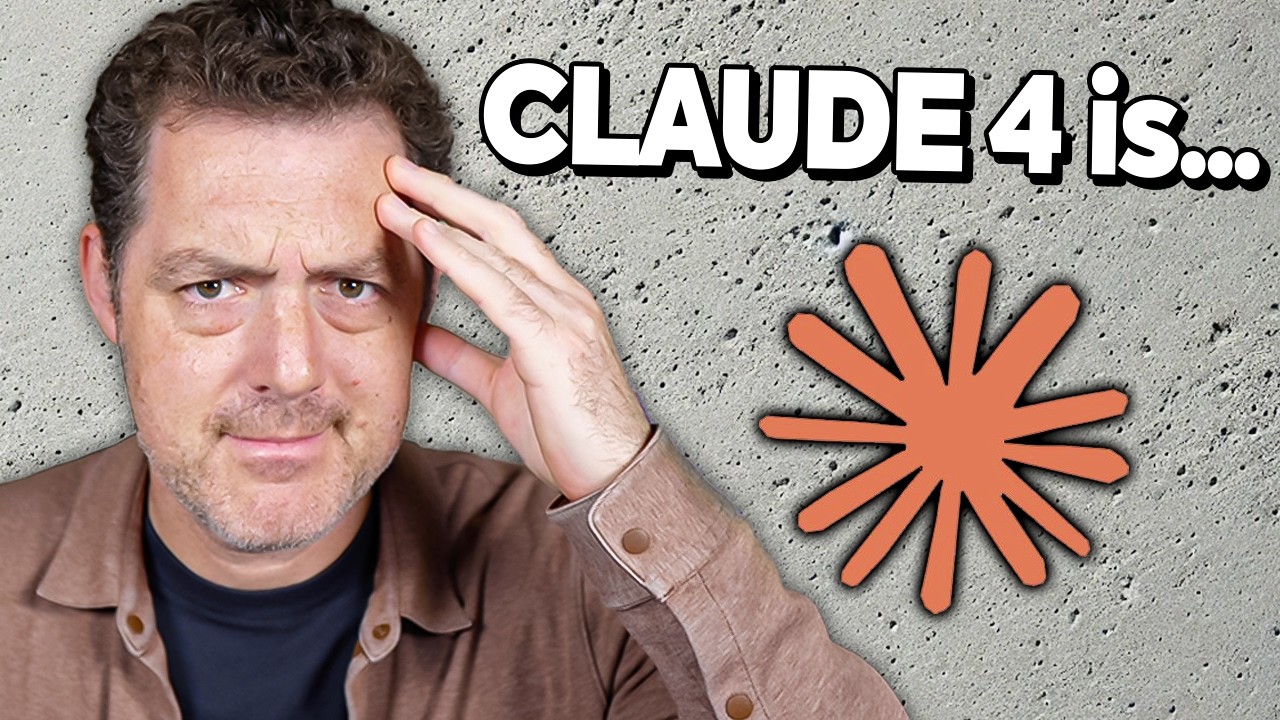The video explains that Claude 4, from Anthropic, is a long-horizon AI model focused on complex reasoning, memory, and tool use, primarily designed for coding and enterprise tasks rather than traditional chat interactions. Anthropic is shifting its strategy away from chatbot competition towards building AI infrastructure for long-term, multi-step projects, with Claude 4 integrated into developer tools like GitHub Copilot and enhanced for long-term memory and complex task execution.
The video introduces Claude 4, the latest model from Anthropic, available in two versions: Sonnet and Opus. These models are designed to excel at long-horizon tasks, capable of maintaining context and completing complex, extended projects that span tens of minutes to hours. Unlike traditional chatbots focused on short interactions, Claude 4 emphasizes deep reasoning, memory, and tool use, positioning itself as a powerful infrastructure for coding and complex task execution rather than a conversational assistant.
Both Claude 4 models are hybrid, offering two modes: near-instant responses for simple prompts and extended thinking for more complex reasoning. They incorporate tool use, including web search, drive search, and calendar integration, with the ability to run multiple tools in parallel, increasing efficiency. The models also feature enhanced memory capabilities, allowing them to better retain and utilize information over long periods, which is crucial for sustained, multi-step tasks. New features like code execution, MCP connector, files API, and prompt caching further expand their functionality, especially for developers and enterprise use.
Anthropic appears to be shifting its focus away from chatbot competition, which is dominated by OpenAI, Google, and Microsoft, towards building infrastructure for AI-powered coding agents. Claude 4 is integrated into platforms like GitHub Copilot, and its performance in coding benchmarks surpasses previous models, showing significant improvements in code generation, reasoning, and multilingual tasks. Despite some benchmarks showing mixed results, the overall trend indicates that Claude 4 is optimized for long-term, complex tasks, with a particular emphasis on safety and reducing shortcuts or loopholes in behavior.
The company has also enhanced Claude’s capabilities for long-term memory and agent-based tasks, making it more efficient at maintaining context and developing a user-specific shorthand over time. They introduced thinking summaries that condense lengthy reasoning processes, and users requiring detailed chains of thought can access raw outputs through paid options. Additionally, Claude Code is now generally available, with new IDE extensions and SDKs that enable developers to build custom coding agents, further emphasizing Anthropic’s focus on infrastructure and developer tools rather than chatbots.
Finally, the video notes that Anthropic has shifted its strategic investment away from chatbot development, acknowledging that models like ChatGPT and Gemini have captured the market’s mind share. Instead, they are concentrating on improving Claude’s ability to handle complex, long-term tasks and serve as a foundational infrastructure for AI-driven coding and enterprise workflows. The pricing for Claude 4 Opus is outlined, with a focus on its large context window and batch processing discounts, and the creator promises to conduct thorough testing and share future results, highlighting the model’s potential for advanced AI applications.
